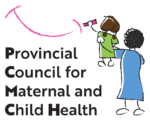UPDATE: New PCMCH Resources on RSV Prevention for Infants and High-Risk Children
PCMCH is pleased to share two new fact sheets on the prevention of Respiratory Syncytial Virus (RSV) in infants and high-risk children. These resources provide essential information and guidance for both parents and healthcare providers, supporting the launch of the expanded RSV prevention program for infants and high-risk children in Ontario for the 2024/25 RSV season.
-
- Fact Sheet for Healthcare Providers (English | French)
This resource is intended for healthcare providers to support them in understanding the recent changes associated with the expansion of Ontario’s RSV prevention program for infants and high-risk children. It outlines how the program will affect the care of prenatal, newborn and paediatric patients. - Fact Sheet for Parents and Expectant Parents (English | French)
This fact sheet is intended for parents, expectant parents and caregivers to support them in learning more about RSV and what preventive measures are available in Ontario to protect their newborns and young children against RSV.- Now available in several additional languages: Simplified Chinese (简体中文), Traditional Chinese (繁體中文), Arabic (عربى), Italian (Italiano), Punjabi (ਪੰਜਾਬੀ) and Spanish (Español)
- Fact Sheet for Healthcare Providers (English | French)
In addition, the Indigenous Primary Health Care Council (IPHCC) and PCMCH have launched a new RSV Fact Sheet tailored for Indigenous parents, families and caregivers in Ontario. The fact sheet is available in six languages, including four Indigenous languages: English, French, Cree, Inuktitut, Ojibway and Mohawk.
Infants and children with immature or compromised immune systems are at higher risk of developing severe illness from respiratory viruses. Similarly, pregnant individuals may face greater risks when contracting respiratory viruses and are more susceptible to complications that could affect both their health and the health of their baby.
During the fall and winter months, the risk of respiratory syncytial virus (RSV), COVID-19, and influenza (flu) is a significant concern, particularly for vulnerable populations.
To assist parents, families and healthcare providers in managing the respiratory illness season (late fall to early spring), PCMCH has developed a range of resources. Below, you will also find links to helpful resources from other government agencies and healthcare organizations that offer reliable, up-to-date information on common respiratory viruses and available immunization options.
Respiratory Syncytial Virus (RSV) Resources
Measles Resources
Influenza (Flu) Resources
COVID-19 Resources
Note that the information provided on this page is not intended to take the place of medical advice, diagnosis or treatment. Contact your healthcare provider to speak about how best to protect yourself, your family and your community from respiratory illnesses. You can also call 811 to connect to health care support 24/7, where you can receive secure and confidential health advice.
